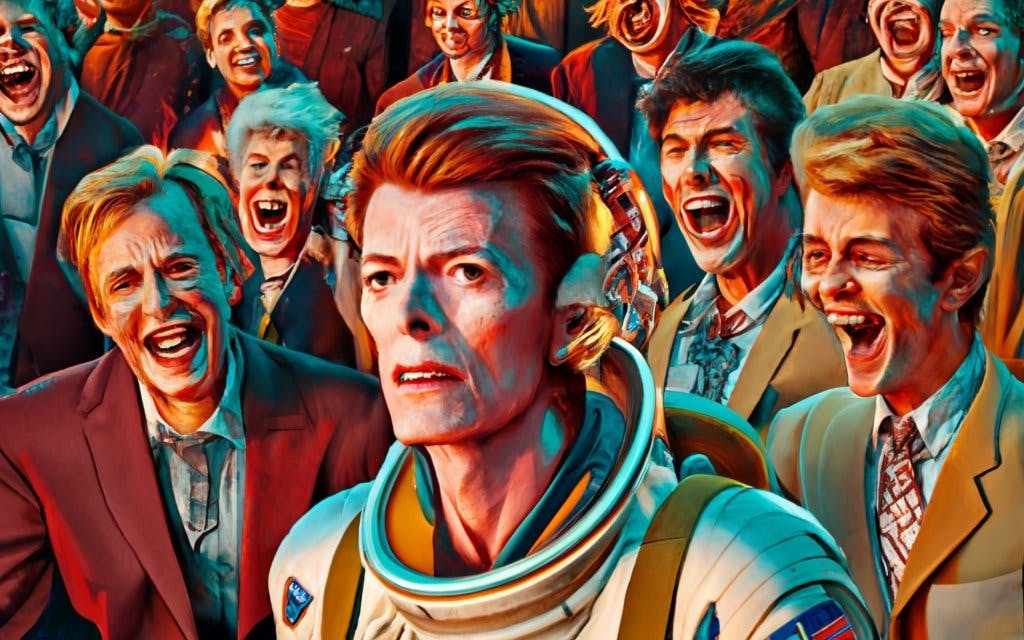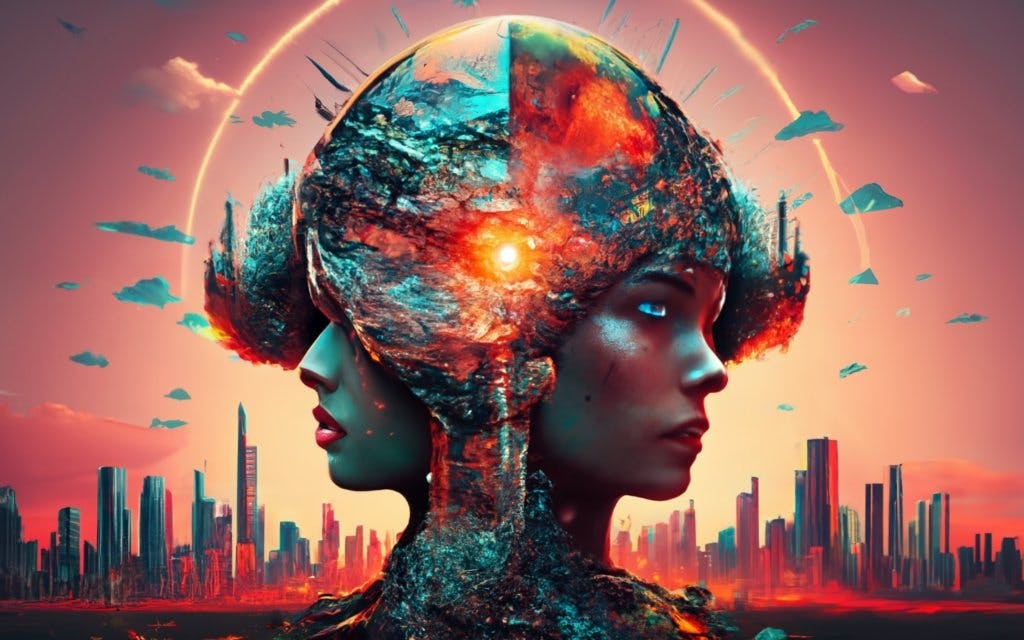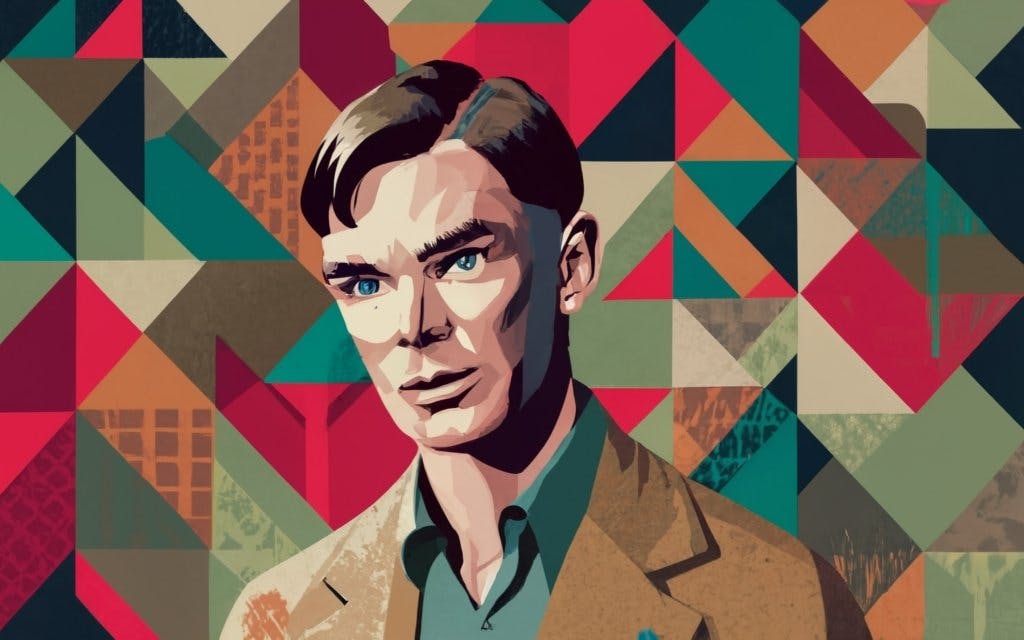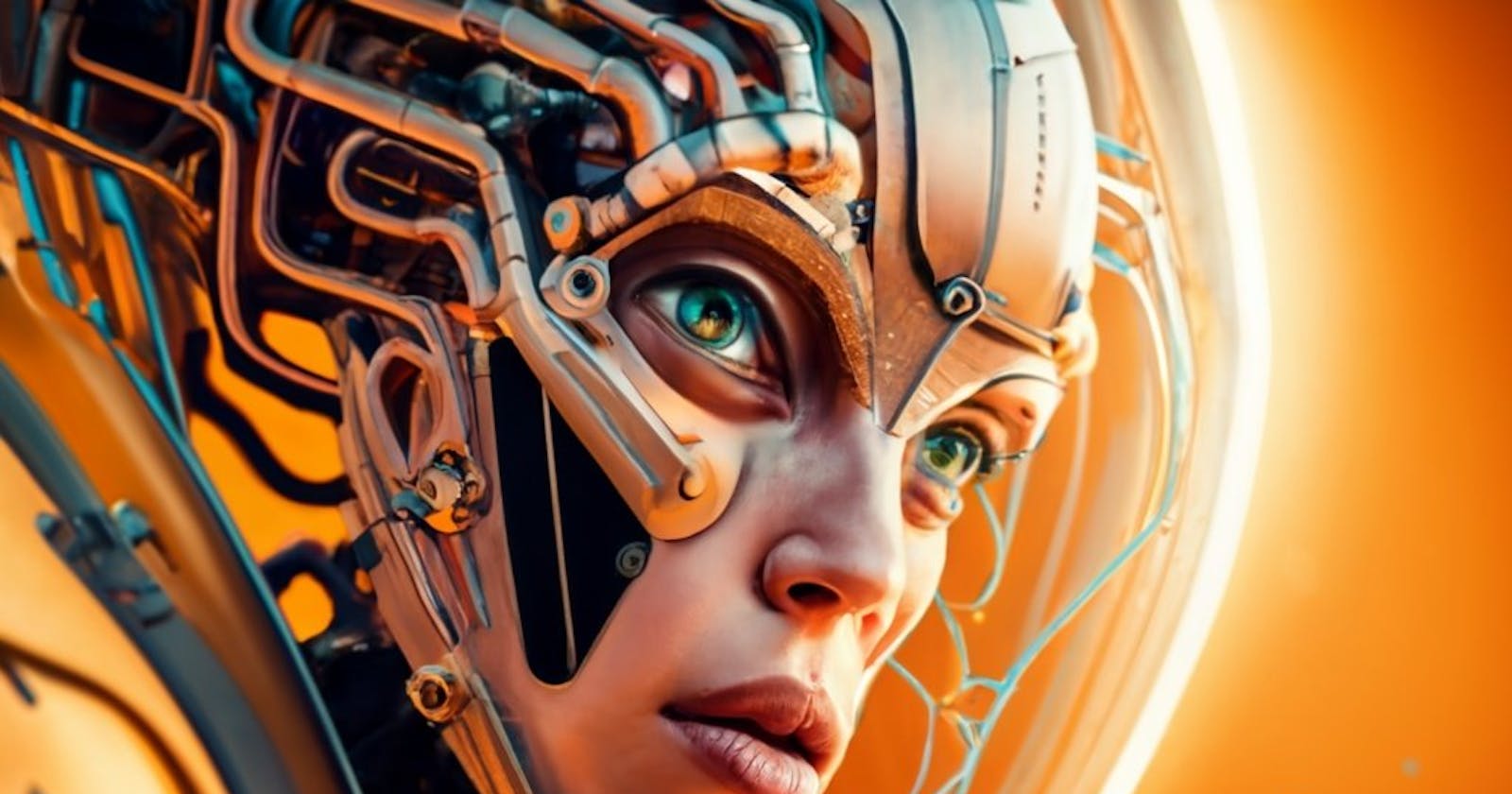Imagine if, ten years ago, I had said to you:
-"Hey, isn't it intriguing that the possibility of aliens feels more real today than it did ten years before that? And if I were to repeat this sentiment every decade, would the reality of their existence echo louder each time?"
As David Bowie's Space Oddity echoed from the jukebox in a dimly lit bar, I leaned in closer and continued:
-Borrowing the words of the great Martin Luther King, Jr.
I have a dream.
My dream might differ from his, but it's a dream nonetheless.
I see myself traveling to Mars, not just as an explorer, but as a software craftsman.
Picture this: During the journey, I'd be assisted by an AI that crafts code and fields all my queries. Parallel to this, I'd be collaborating on an open-source project designed to power brain chips.
Their mission? To tackle and perhaps vanquish grave diseases.
You probably would have raised an eyebrow and smiled, wondering if our conversation was my ticket to a mental institution.

How times change!
The Unthinkable Reality of 2023
Flash forward to 2023, and that once "crazy" conversation is now closer to reality than fiction.
Figures like Elon Musk and others have transformed the previous dream into something that could potentially happen during our lifetimes.
Now, picture our world enhanced by AI, augmented reality, shaped by the metaverse, and characterized by a hyperconnected society.
We are in the midst of a moment that going to mark a "before" and "after" in human history. The significance of AI alone, even without considering other advancements, could rival foundational discoveries like fire.
"It is more profound than, I dunno, electricity or fire."
alan- Sundar Pichai, CEO of Google
A convergence of significant advancements unfolds before our eyes, creating a butterfly effect beyond our comprehension.
The more privilege you have, the more opportunity you have. The more opportunity you have, the more responsibility you have.
-Noam Chomsky
Reality, in many ways, is a social construct. Our perceptions and understandings of the world aren't just formed by inherent truths but are shaped by societal interactions, cultural norms, and collective beliefs. It's up to us to seize this moment, harness these opportunities, and strive to be the best versions of ourselves, knowing that our actions can influence and reshape the very reality we live in.

1950: The Dawn of a Question
The year is 1950.
Allow me to paint a scene for you, as if I were there, in the heart of the University of Manchester.
In a dimly lit auditorium, immersed in an air of expectancy, a silhouetted figure steps up to the podium. As he begins to speak, the murmurs of the audience fade:
I propose to consider the question, 'Can machines think?' This should begin with definitions of the meaning of the terms 'machine' and 'think.' The definitions might be framed so as to reflect, as far as possible, the normal use of the words. But such an approach has its dangers...
This was the preamble to "The Imitation Game", a paper by Alan Turing. He, the father of computation, and along with figures like John von Neumann, was responsible for the computers we have today. At this moment, nothing remotely close existed that made this question seem even remotely possible.
Yet, it's essential to ponder: What made that question so illuminating?
It wasn't just about machines and their capabilities. It was about us – humans.

Reflections on Tomorrow
As you've journeyed through this narrative, from the mystique of aliens to the revelations of our technological age, it isn't just an expedition into the cosmos or the digital realm; it's a deep dive into the heart of human aspiration.
Each step we've taken, every decade we rewind or fast-forward, isn't merely about what's out there or the marvels we've created. Instead, it’s a testament to our collective curiosity, our need to explore, to dream, and to question.
The road ahead is unknown, so, let's continue this travel, hand in hand, into the vast expanse of tomorrow, guided by our insatiable curiosity.
